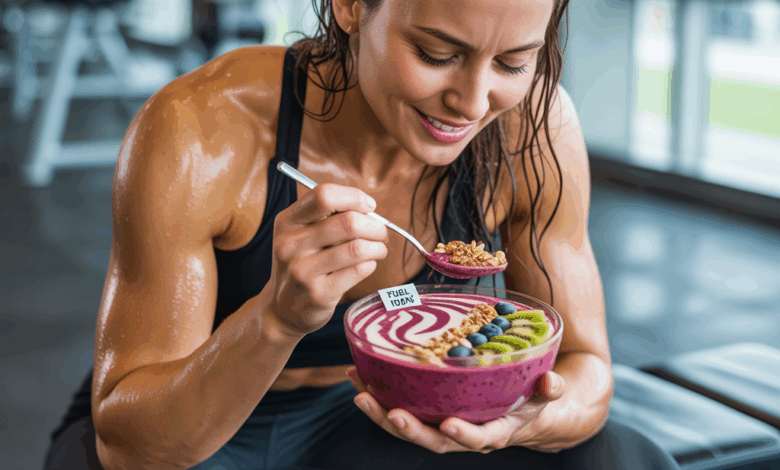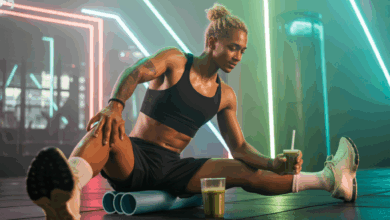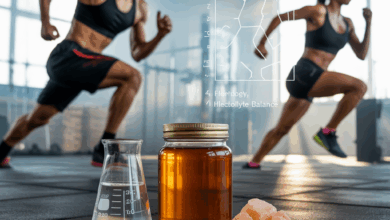What to Eat After Swimming: Boost Recovery with the Right Nutrition

Have you ever finished a challenging swimming session, feeling both exhilarated and ravenously hungry, only to wonder, “What should I eat after swimming to properly refuel and recover?” Whether you’re a casual lap swimmer or training for a triathlon, what you eat post-swim can dramatically impact your energy levels, muscle recovery, and overall performance. Let’s dive into the best nutrition strategies and meal ideas that will keep you energized and ready for your next workout.
Why Post-Swim Nutrition Matters
Swimming is a full-body cardiovascular workout that burns a substantial amount of calories and depletes your glycogen stores. Because you are typically in a cooler environment (the pool), you might not always feel as thirsty or hungry immediately after, but replenishing fluids and nutrients quickly is crucial.
Eating the right foods after swimming helps to:
- Restore glycogen and energy stores
- Repair and build muscle tissue
- Rehydrate effectively
- Reduce muscle soreness and inflammation
- Support immune function and overall recovery
What to Eat After Swimming: Key Nutrients to Focus On
Post-swim nutrition should balance several macronutrients, with an emphasis on carbohydrates, protein, and hydration.
Carbohydrates: Refuel Your Energy Tanks
Swimming, especially long or intense sessions, significantly uses glycogen—the stored form of carbohydrates in your muscles. Eating carbs after your swim helps replenish these stores and prepares your body for your next workout. Aim for whole grain bread, brown rice, quinoa, fruits, and starchy vegetables.
Protein: Repair and Build Muscle
Protein is essential for muscle repair and recovery. Including lean proteins like chicken, turkey, tofu, Greek yogurt, or legumes post-swim supports muscle fiber repair and reduces soreness.
Hydration: More Than Just Water
Hydrating after swimming is vital—even if you don’t feel super thirsty. Water is usually sufficient for shorter workouts, but if you swim intensely for over an hour or sweat heavily, consider sports drinks that replace electrolytes like sodium, potassium, and magnesium.
Top Foods to Eat After Swimming
Wondering what that looks like in practice? Here are some of the best meal and snack ideas tailored to your post-swim needs:
1. Smoothie Bowls Packed with Nutrients
Blend your favorite fruits (bananas, berries, mango) with protein powder or Greek yogurt, then top with chia seeds, nuts, and granola. This combo offers carbohydrates, protein, healthy fats, and antioxidants for recovery.
2. Grilled Chicken with Quinoa and Roasted Veggies
This balanced meal provides a great source of complex carbs, lean protein, and vitamins that help reduce inflammation.
3. Whole Grain Toast with Avocado and Eggs
An easy-to-make post-swim breakfast or snack rich in protein, healthy fats, and fiber.
4. Cottage Cheese with Pineapple or Melon
Cottage cheese is loaded with casein protein, which helps muscle recovery over time, paired with fruits that provide quick carbohydrates.
Tips for Maximizing Your Post-Swim Recovery
- Eat Within 30–60 Minutes: Try to have a snack or meal soon after finishing your swim when your muscles are most receptive to nutrients.
- Keep Hydrated: Monitor your hydration status with the color of your urine—it should be pale yellow. If it’s darker, drink more fluids.
- Include Antioxidant-Rich Foods: Swimming can create oxidative stress, so consuming berries, leafy greens, and nuts can help combat free radicals.
- Mix Up Your Workout: Combine swimming with strength training or yoga for a well-rounded fitness routine that complements good nutrition.
Real-World Example: Emma’s Post-Swim Routine
Emma, a recreational swimmer preparing for her first triathlon, changed her post-swim nutrition habits based on advice she found here. She now consistently enjoys a peanut butter banana smoothie and a side of whole grain crackers within 45 minutes after her swim. After six weeks, Emma noticed less fatigue, faster muscle recovery, and improved swim times.
Frequently Asked Questions
While it’s tempting to grab chips or sweets after a workout, these options lack the nutrients your body needs to recover effectively. Opt for nutrient-dense foods instead to support muscle repair and energy replenishment.
Protein is very important as it helps repair and rebuild muscle tissues broken down during swimming. Including a source of quality protein in your post-swim meal or snack aids faster recovery.
Not necessarily. For swims lasting less than an hour at moderate intensity, water usually suffices. However, for longer or more intensive sessions, sports drinks can help replace electrolytes lost through sweat.
Conclusion: Fuel Your Swim with Smart Nutrition
Knowing what to eat after swimming is essential to optimize your recovery, boost energy, and improve overall performance. By focusing on a balance of carbohydrates, protein, and hydration, you’ll set yourself up for success both in and out of the pool. Ready to take your swimming workouts to the next level? Start incorporating these nutrition tips today and experience the difference nutrient-rich meals can make.
Looking for more ways to enhance your fitness journey? Be sure to check out our workout routines and nutrition guides for expert insights and practical advice.
What’s your favorite post-swim meal? Share your tips in the comments below and let’s keep the conversation flowing!
For more on what to eat after swimming to aid in recovery and performance, check out our Hiit Swim Workout article.





